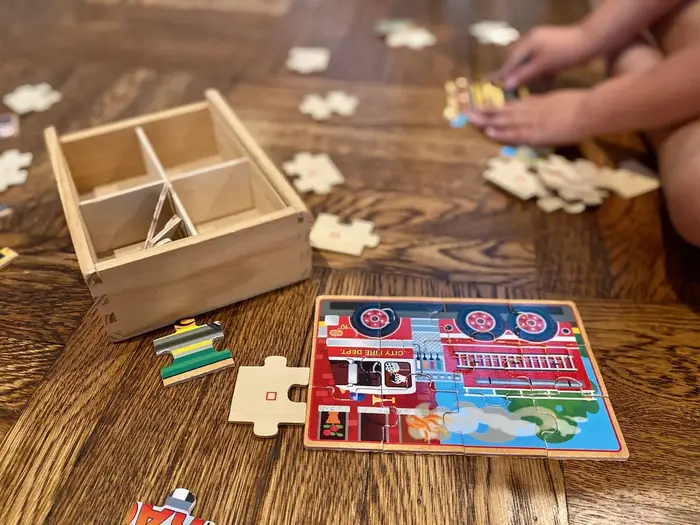From simple and single-shape puzzles to advanced jigsaw puzzles, puzzles act as excellent tools that keep your children busy! However, that is not all. These puzzles play a crucial role in shaping your child’s early childhood education. Wondering how? These are perfect accessories that help tune many skills like motor skills and help their brains evolve! Read more in this article and find out why these puzzles are so important!
The Refinement in Problem Solving Skills And Math Skills
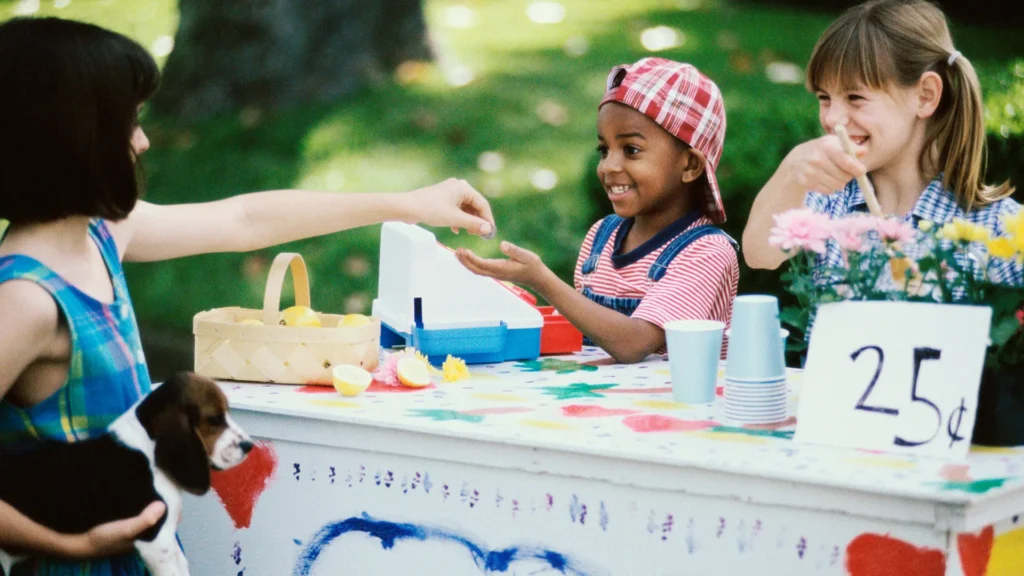
Puzzles act as stepping stones that lay the foundation for early math skills. Children learn to recognize various figures and patterns by visualizing the pieces’ geometry. They learn to experiment and conduct trial and error to find the right fit.
This manipulation of the puzzle pieces and the thought process that goes into it help them face challenges and overcome them! It teaches them the art of perseverance and patience. These puzzles also force them to take different approaches and help them solve everyday problems with adeptness and enhanced perception.
The Best Brain Exercise
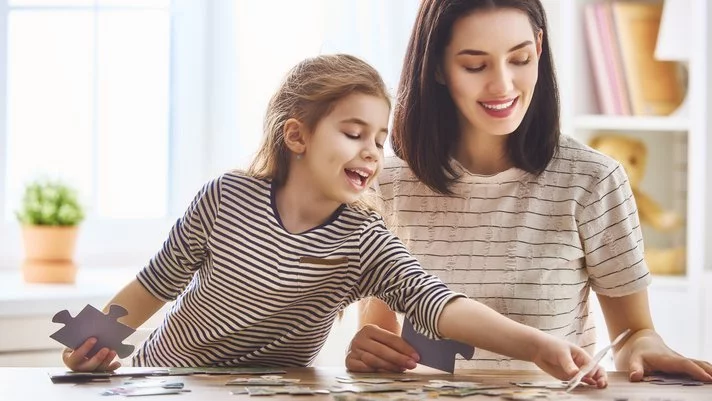
The brain is divided into two hemispheres, each responsible for controlling different functions. The left side of your brain handles the analytical and logical aspects, while the right side is primarily responsible for controlling creativity, intuition, and visuals.
Since puzzles are a fusion of both creativity, and logical thinking, your child’s brain engages in a wholesome mental workout while decoding the right way to solve the puzzle. What better way to keep their brain active than engaging them in fun mental workouts?
The Confidence Boost

The feeling of pride and accomplishment that your child feels acts as a fantastic confidence promoter. It also instills a sense of autonomy and competence in your child. The capacity to execute a complex task all by themselves makes them confident to face the world.
However, you need to choose the right puzzles that match your child’s age because too easy ones can easily make them overconfident and disinterested. Similarly, too complex puzzles might backfire on your child. Most puzzles come with recommended ages written on them, which can simplify the puzzle selection process for you.
The Gradual Increase in Attention Span
We all know how agile and spry a child’s brain is. With so many things going on in their minds, it is hard for them to sit down in one place and work on something for a long period. However, you might have noticed how engrossed and lost they become while trying to solve a puzzle.
Seconds turn into minutes as their brains channel all the energy and focus in order to solve the challenges in front of them. In those moments, none of the distractions seem to work on them, making puzzles the best attention span trainers!
You can present them with intriguing puzzles that make them concentrate, improve their attention span and help them achieve control over their brains.
The Upgrade in Eye-Hand Coordination
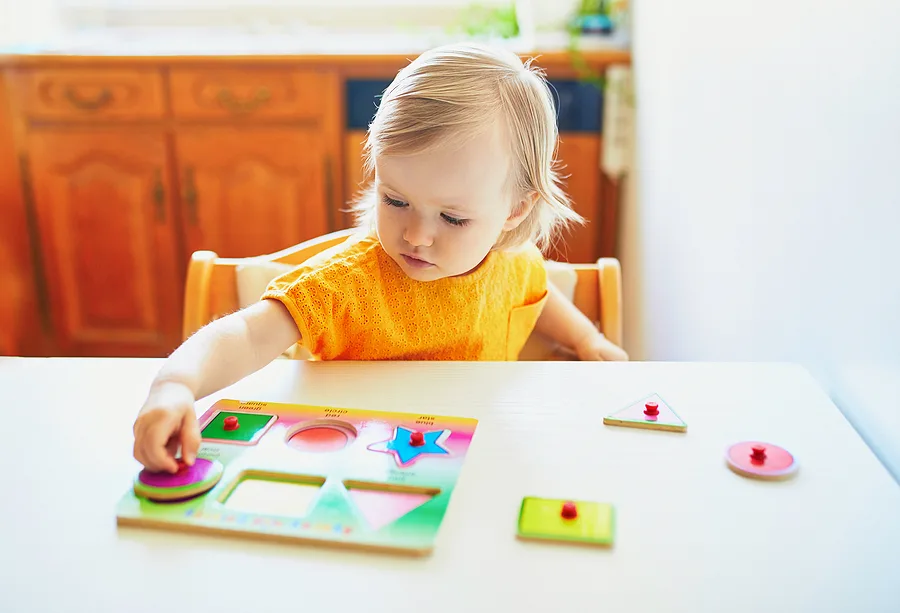
Synchrony in movements based on what you glimpse through your eyes is one of the most crucial aspects that a brain has to be proficient at. If your hands and eyes can operate simultaneously in tandem with each other, you have perfect coordination between them!
Solving puzzles helps children focus on improving their visual-motor integration, and there is a bonus! The boost in visual-motor integration will enable them to learn writing quickly.
The Advancement in Spatial and Visual Reasoning
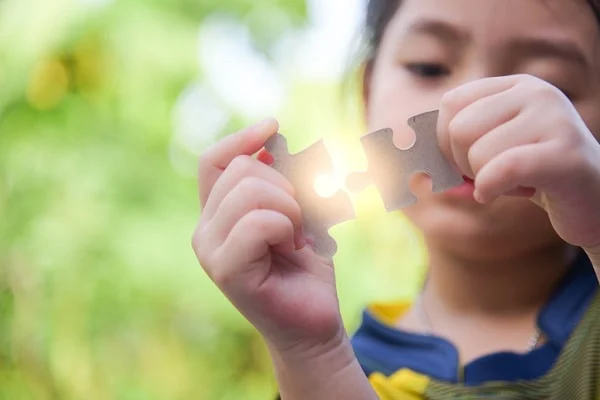
Comprehending spatial relations helps your child to pinpoint an object’s position with respect to the space around it. By looking at the available space and individual pieces, they learn the art of fitting everything together, given all the restrictions.
This ability especially helps them understand the orientation of numbers and differentiate between letters like i and l. In the long run, according to USA Today, it makes them better drivers!
Fun Learning
There are several ways to learn new skills and develop the brain. After all, learning is not just reading a textbook or solving a numerical; every little thing teaches you different things in life. Puzzle-solving can be a fun learning experience!
You never know when your child will fall in love with learning new things! Hence, ensure that you provide them with this refreshing method of developing the brain, especially in their early childhood phase of life, and pave the way for their education!
The Strengthening of Visual Perception
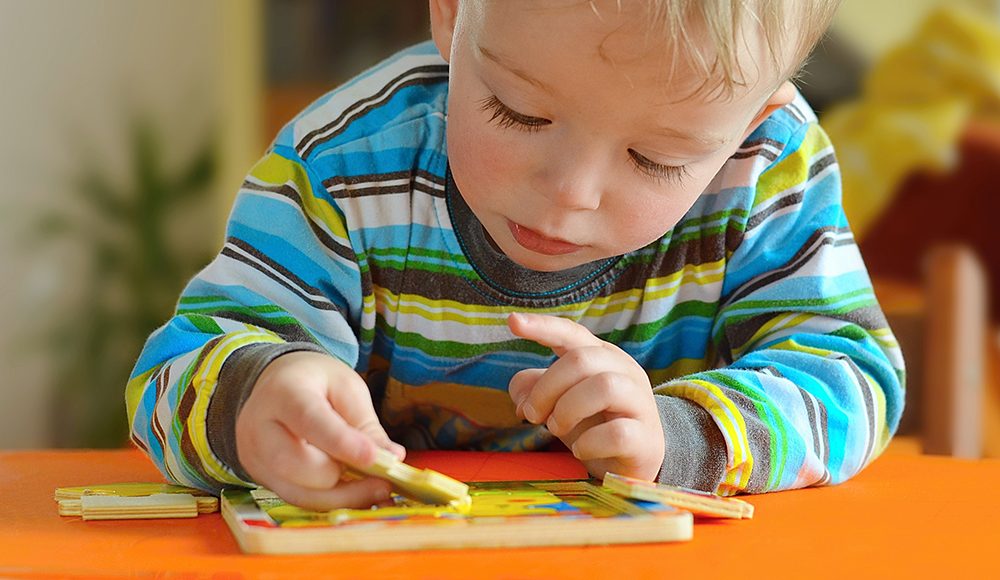
The various shapes all with different sizes, hues, and patterns, are all transferred to the brain through neurons for processing, where they get interpreted, and this is known as visual perception.
Visual perception consists of multiple elements, such as:
- Visual Memory – This refers to the ability to retain things in the brain after glimpsing them.
- Visual Discrimination – This is your proficiency in discovering dissimilarities and resemblances between objects that your eyes see.
- Visual Comprehension – It is the ability of you brain to process and figure out what the visuals your eye sees are and create meaning out of it.
- Visual Closure – This is the ability to establish an object’s identity based on partially seeing it.
All these aspects play a crucial role in helping your child grasp and discern the world. Visual perception is also very crucial for learning to write as well as read. In a nutshell, you can call puzzle solving a precursor to literacy!
Final Words
This brings us to the end of this article. We are sure that you must have gained plenty of insights into how puzzles are vital for early childhood education. If you are wondering where to find the right puzzle games for your child, you can check out these Montessori Toys!
Remember that the early stages of childhood are crucial, where the brain undergoes a major development phase. Ensure that you engage your child in various stimulating activities and help them lay solid foundations for futures! You can also sit down with your child and construct puzzles jointly. This not only improves their cognitive skills but also helps to strengthen your familial bonds!

